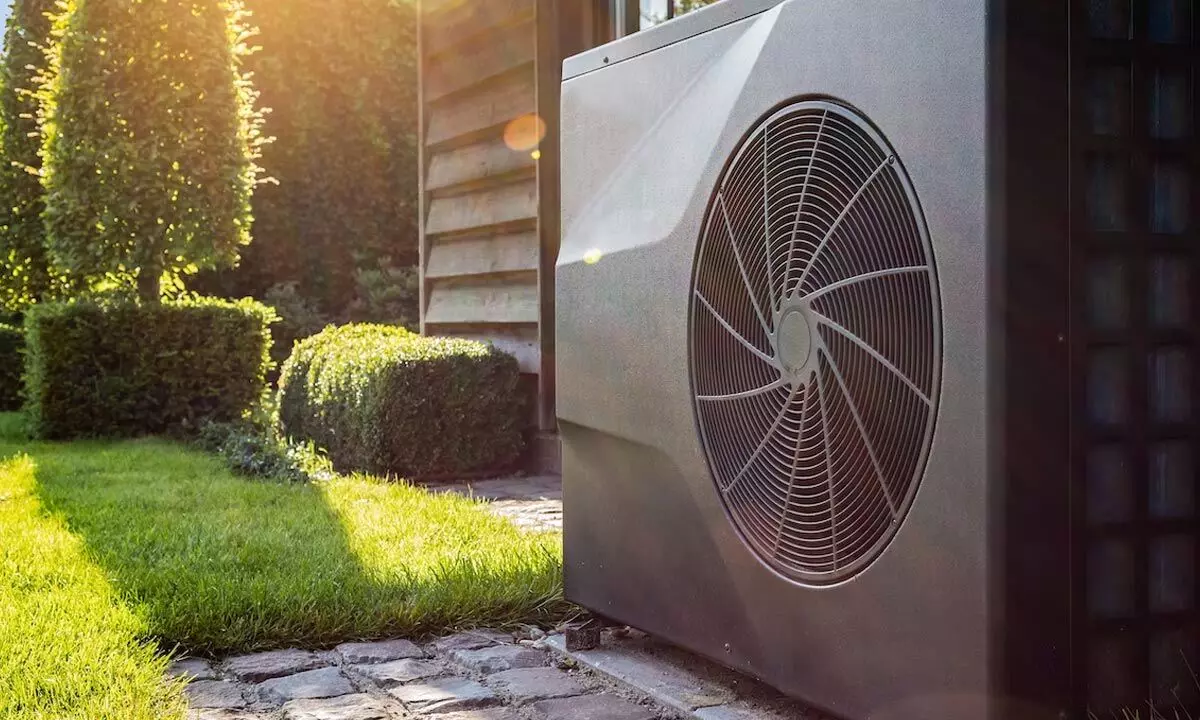Heat pumps sale to see steep rise as global energy crisis accelerates
Global heat pump sale rose by 15% in 2021, double the average of the past decade, led by EU where they rose by around 35%. Annual sales of heat pumps in EU could rise to 7 mn by 2030
image for illustrative purpose

New Delhi: Worldwide sales of heat pumps are set to soar to record levels in the coming years as the global energy crisis accelerates their adoption, the International Energy Agency (IEA) said in a new special report released on Wednesday.
The heating of most buildings around the world - such as homes, offices, schools and factories - still relies on fossil fuels, particularly natural gas. Heat pumps are a hyper-efficient and climate-friendly solution, which help consumers save money on bills and enable countries to cut reliance on imported fossil fuels, according to the IEA special report 'The Future of Heat Pumps', the first comprehensive global outlook on the subject.
The heat pump market has been growing strongly in recent years, due to falling costs and strong incentives. Global heat pump sales rose by nearly 15 per cent in 2021, double the average of the past decade, led by the European Union where they rose by around 35 per cent. Sales in 2022 are set to hit record levels in response to the global energy crisis, especially in Europe where some countries are seeing sales double in the first half of 2022 compared with the same period last year. Annual sales of heat pumps in the EU could rise to 7 million by 2030 - up from 2 million in 2021 - if governments succeed in hitting their emissions reduction and energy security goals. Heating buildings accounts for one-third of EU gas demand today. Heat pumps could reduce that demand by nearly 7 billion cubic metres (bcm) in 2025 - roughly equal to the natural gas supplied via the Trans Adriatic Pipeline in 2021. This annual gas saving would grow to at least 21 bcm by 2030 if EU climate targets are met.
"Heat pumps are an indispensable part of any plan to cut emissions and natural gas use, and an urgent priority in the European Union today," said IEA Executive Director FatihBirol.
"The technology is tried and tested, even in the coldest of climates. Policy makers should be putting their weight behind this technology that is witnessing unprecedented momentum at the moment. Heat pumps will be central to efforts to ensure everyone can heat their homes this winter and next, to protect vulnerable households and businesses from high prices, and to meet climate objectives."
Heat pumps typically cost less over their lifetimes than fossil fuel boilers, thanks to their higher efficiency. At today's energy prices, annual energy bill savings for households that switch to heat pumps can range from $300 in the US to $900 in Europe.
The government policy support is needed, though, to help consumers overcome heat pumps' higher upfront costs relative to alternatives. The costs of purchasing and installing a heat pump can be two-to-four times as much as those for a gas boiler. Financial incentives for heat pumps are already available in over 30 countries, which together cover more than 70 per cent of heating demand today. Many of them also provide additional support to low-income households where energy savings from a heat pump can be significant, ranging between two and six per cent of household income.

